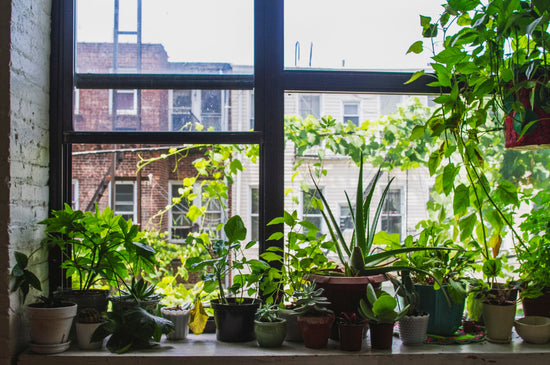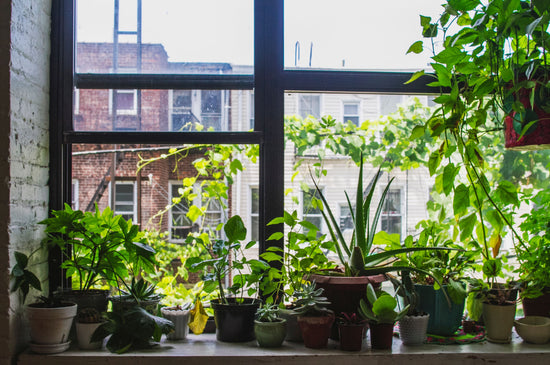Blueberry Plant Care Hacks: What Pros Know That You Don’t
Blueberries are a fantastic addition to any garden, offering both delicious fruit and aesthetic appeal. However, growing them successfully involves more than just planting and watering. With these pro tips, you can ensure your blueberry bushes thrive and produce an abundant harvest.
Choosing the Right Blueberry Plant
The first step to a thriving blueberry garden is choosing the right variety for your climate and space. Some popular options include:
- Blueberry Plant - Live Starter Plants: A great all-around option for beginner and experienced gardeners alike.
- Emerald Blueberry Plant: Known for its large, sweet berries.
- Blueberry Plant in 2-inch Grower’s Pot: Perfect for smaller spaces or container gardening.
For gardeners looking to diversify their edible garden, the Berry Variety Pack includes a mix of berry plants to complement your blueberries.
Planting Like a Pro
Blueberries require acidic soil with a pH between 4.5 and 5.5. If your soil doesn’t naturally fall within this range, amend it with sulfur or peat moss. Plant your blueberries in well-draining soil and ensure they receive full sun for the majority of the day.
- Spacing: Leave at least 3-4 feet between plants to allow for proper air circulation.
- Depth: Position the root ball slightly above the soil line to prevent waterlogging.
Irrigation Essentials
Blueberries prefer consistently moist soil, but overwatering can be detrimental. Installing a drip irrigation system ensures even watering. Mulch around the base of each plant with pine bark or needles to help retain moisture and maintain soil acidity.
Fertilizing for Success
Fertilize blueberries with a formula designed for acid-loving plants, such as those made for azaleas. Apply fertilizer in early spring, just before new growth begins, and again after the harvest season. Over-fertilizing can lead to excessive leaf growth at the expense of fruit.
Pruning for Productivity
Pruning is essential for encouraging healthy growth and large fruit. Here’s how to do it right:
- Remove dead or damaged branches.
- Thin out older canes that no longer produce fruit.
- Cut back low-hanging branches that touch the ground.
Prune during the dormant season to direct the plant’s energy toward fruit production.
Pest and Disease Management
Blueberries are relatively resistant to pests and diseases, but it’s still important to be proactive:
- Use row covers to protect plants from birds and insects.
- Introduce beneficial insects like ladybugs to control aphids.
- Apply organic fungicides to prevent fungal diseases like powdery mildew.
Growing Blueberries in Containers
For gardeners with limited space, blueberries grow exceptionally well in containers. Use a large pot with good drainage and fill it with an acidic potting mix. Compact varieties, such as those found in the Patio Fruit Plant Variety Pack, are perfect for this purpose.
Maximizing Your Harvest
Blueberries typically take 2-3 years to reach full production. Here are a few tips to maximize your harvest:
- Pick berries as they ripen to encourage continuous production.
- Provide netting to protect ripe fruit from birds.
- Fertilize and water consistently during the growing season.
Where to Buy Blueberry Plants
At Wekiva Foliage, you’ll find a wide range of blueberry plants, from starter packs to patio-ready options. Whether you’re planting a single bush or designing an entire edible landscape, Wekiva Foliage has you covered.
FAQ
1. How much sunlight do blueberry plants need?
Blueberries require at least six to eight hours of full sun daily for optimal growth and fruit production.
2. Can I grow blueberries in pots?
Yes, blueberries thrive in containers, especially dwarf varieties. Use an acidic potting mix and ensure the pot has adequate drainage.
3. How often should I water my blueberry plants?
Blueberries need about 1-2 inches of water per week. Drip irrigation or consistent hand watering is ideal.
4. What is the best time to plant blueberries?
Plant blueberries in early spring or late fall when the plant is dormant for the best results.
5. How long does it take for blueberry bushes to produce fruit?
Blueberry bushes typically take 2-3 years to start producing significant fruit, but proper care can speed up the process.





